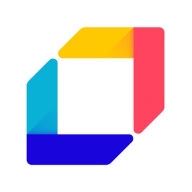

Find out in this report how the two Container Security solutions compare in terms of features, pricing, service and support, easy of deployment, and ROI.
| Product | Market Share (%) |
|---|---|
| Trivy | 6.0% |
| Red Hat Advanced Cluster Security for Kubernetes | 2.2% |
| Other | 91.8% |


| Company Size | Count |
|---|---|
| Small Business | 6 |
| Midsize Enterprise | 2 |
| Large Enterprise | 4 |
| Company Size | Count |
|---|---|
| Small Business | 3 |
| Midsize Enterprise | 1 |
| Large Enterprise | 9 |
Red Hat Advanced Cluster Security for Kubernetes is a Kubernetes-native container security solution that enables your organization to more securely build, deploy, and run cloud-native applications from anywhere. With its built-in security across the entire software development life cycle, you can lower your operational costs, reduce operational risk, and increase developer productivity while improving your security posture immediately. In addition, Red Hat Advanced Cluster Security integrates with security tools and DevOps in an effort to help you mitigate threats and enforce security policies that minimize operational risk to your applications. It also enables you to provide developers with actionable, context-rich guidelines integrated into existing workflows, along with tooling to support developer productivity. The solution is suitable for small, medium, and large-sized companies.
Red Hat Advanced Cluster Security for Kubernetes Features
Red Hat Advanced Cluster Security for Kubernetes has many valuable key features. Some of the most useful ones include:
Red Hat Advanced Cluster Security for Kubernetes Benefits
There are many benefits to implementing Red Hat Advanced Cluster Security for Kubernetes. Some of the biggest advantages the solution offers include:
Reviews from Real Users
PeerSpot user Igor K., Owner/Full Stack Software Engineer at Maraphonic, Inc., says, “The solution allows teams to create their own virtual spaces and share resources. The most valuable feature is the ability to share resources.”
Trivy offers comprehensive scanning for files, images, repositories, and infrastructure. It's open-source and integrates with CI/CD for vulnerability detection and security enhancement.
Trivy scans vulnerabilities in code, Docker images, containers, and infrastructure. It integrates seamlessly into DevOps pipelines, ensuring security in dependency management and open source vulnerabilities. This tool, lightweight and open-source, provides user-friendly reports and supports continuous vulnerability database updates, fostering ease of use across operating systems. Users benefit from its scanning capabilities, covering Kubernetes, AWS credentials, and GCP service accounts, effectively identifying vulnerabilities and misconfigurations.
What are Trivy's key features?In industries like technology and finance, Trivy is used extensively to secure applications, perform compliance checks, and offer security metrics visualization. It addresses microservices, container systems, and Kubernetes clusters security requirements, supporting DevOps teams and enhancing codebase analysis precision.
We monitor all Container Security reviews to prevent fraudulent reviews and keep review quality high. We do not post reviews by company employees or direct competitors. We validate each review for authenticity via cross-reference with LinkedIn, and personal follow-up with the reviewer when necessary.